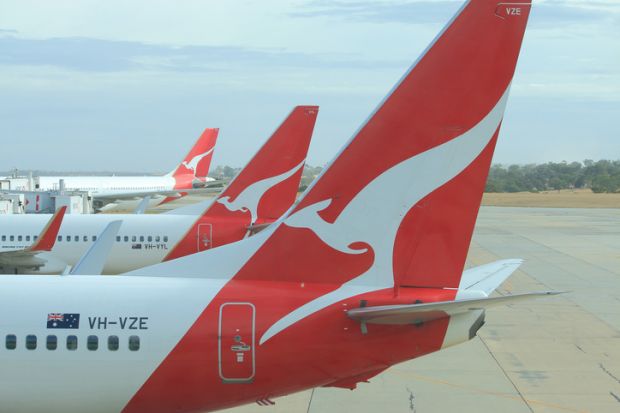An Australian university and a UK institution are launching a dual degree in a partnership spanning 9,000 miles.
Students on the joint programme will walk away with a commerce degree from Perth’s Murdoch University and a bachelor’s in business from the University of Hertfordshire.
The programme starts next year, with students beginning their studies at either institution and switching after 18 months. Graduates will gain qualifications from the university where they finish, and then apply retrospectively for credentials from the institution where they began.
Murdoch’s deputy vice-chancellor, Lyn Karstadt, said that the arrangement relied on each university recognising the equivalence of each other’s teaching. “We’ll transfer someone who has done 18 months somewhere else into a degree if we’re absolutely satisfied that the content and level are the same,” she said.
“Providing they reach the required standard, they would then be conferred a degree in its totality. In this partnership, we’re doing that en masse, with a programme as opposed to an individual.”
It is the latest example of cross-border cooperation that yields twin credentials, often at the postgraduate level. Sydney’s Macquarie University offers dual PhDs with the University of Bristol, for example, while the Australian National University has struck similar arrangements with institutions in China, Germany and Malaysia.
Increasingly, such partnerships are becoming available to undergraduates. The University of Sydney and Sciences Po in Paris offer a twin arts degree, with participants spending two years full-time at each institution, while a dual-certificate programme involving the business schools of Queensland University of Technology and Aston University requires just a single year of study in Brisbane.
Professor Karstadt said that the UK and Australia were natural bedfellows for dual-award programmes because of their parallel academic standards and quality assurance mechanisms. Murdoch and Hertfordshire also shared a “similar ethos”, she said, with both running large transnational business programmes.
Hertfordshire claims about 3,000 business students in Kuala Lumpur, and Murdoch has some 6,500 students studying business, arts, psychology and science in Singapore.
While the programme is available to domestic students, Professor Karstadt said that she expected most enrolments to come from elsewhere. “We imagine many students from outside the UK or Australia would be very interested,” she said.
“It doesn’t only give two-for-one as far as qualifications are concerned. People have two sets of international experience to take back wherever they’re going to practise.”
But she insisted that the partnership had not been concocted as a way of attracting international revenue after Australian university teaching grants were frozen last December. Rather, the idea arose a year earlier when the Australian airline Qantas announced non-stop flights between Perth and London.
Hertfordshire’s pro vice-chancellor for business and international development, Julie Newlan, said that Brexit would force the UK to adopt a more global mindset. “It is this sort of initiative that will best prepare and upskill our workforce for the challenges they will face,” she said.
Murdoch’s dean of business and governance, Grant O’Neill, said that trade tensions and South China Sea ructions made it a “fascinating time” for business.
“It’s a time when we need to expose our students to the world more than ever before, and move away from a narrow business curriculum to broader ideas and thinking. That’s why I’m so eager to see this happen.”




